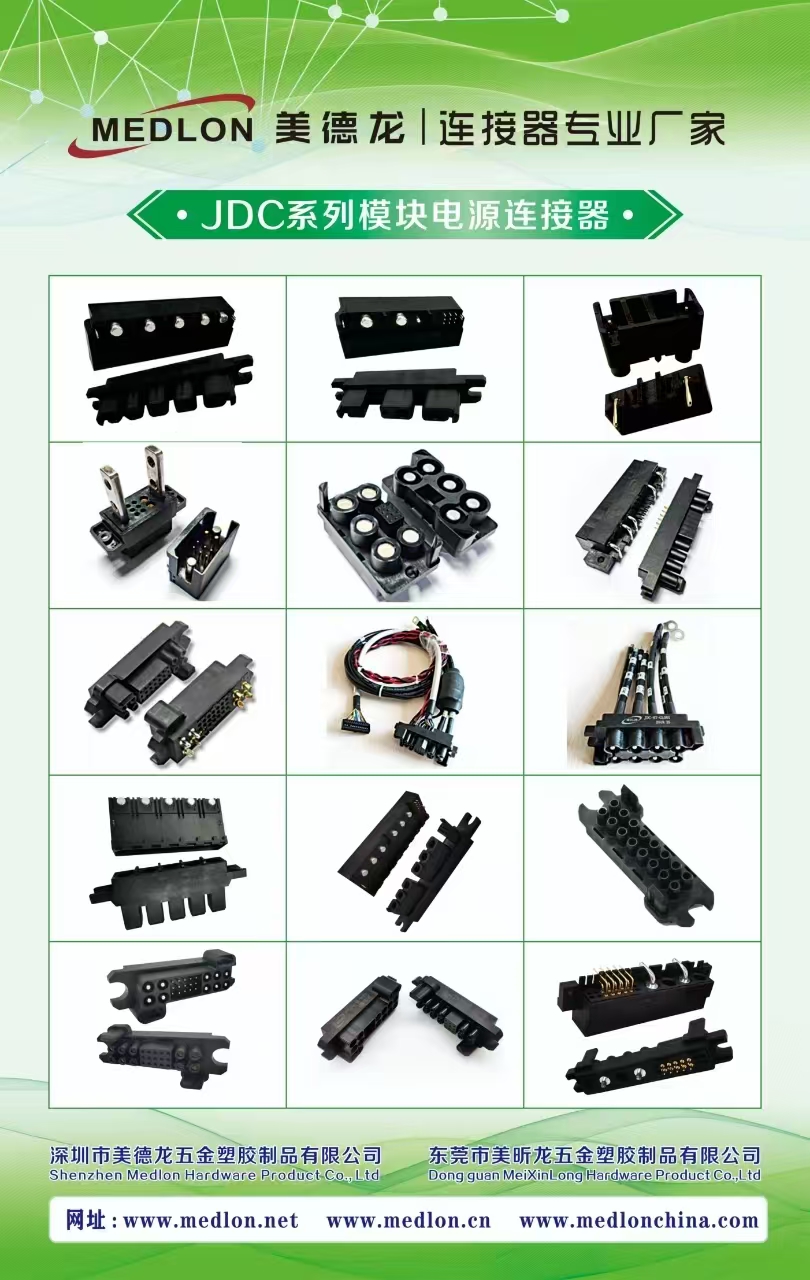MedlonUploaded:2025-09-26Browse:656
When it comes to electronic connectivity, the choice of connectors plays a critical role in ensuring the efficiency, reliability, and safety of devices. As a leading power blade connector manufacturer, Medlon is well-versed in the intricacies of various connector types. Two of the most prominent connector categories in modern electronics are signal connectors and coaxial connectors. In this article, we’ll delve into their differences, applications, and how Medlon’s expertise in connector manufacturing can help you select the best solution for your needs.
Signal connectors are designed primarily to transmit electrical signals between devices or components. These connectors are essential in applications where data transfer, control signals, and low-power communications are required. Signal connectors come in a variety of shapes and sizes, from simple pin headers to sophisticated multi-pin assemblies.
Medlon’s power blade connector series exemplifies the robustness and reliability needed for high-performance signal transmission. Their blade connectors are engineered for minimal signal loss and maximum durability, making them ideal for demanding environments.
Coaxial connectors, on the other hand, are specialized connectors designed to work with coaxial cables. These cables consist of a central conductor, insulating layer, metallic shield, and protective outer jacket. The unique structure of coaxial cables and connectors allows for the efficient transmission of high-frequency signals, such as radio frequency (RF), video, and broadband data.

While Medlon specializes in power blade connectors, the company recognizes the importance of coaxial connectors in high-frequency applications. Their R&D team continually monitors advances in coaxial technology to inform the design of next-generation blade connectors that can coexist seamlessly with coaxial systems.
| Feature | Signal Connectors | Coaxial Connectors |
|---|---|---|
| Primary Use | Data and control signal transmission | High-frequency signal transmission |
| Shielding | Limited or no EMI shielding | Strong EMI shielding |
| Frequency Range | Low to moderate | Moderate to very high (RF) |
| Physical Design | Multiple pins or blades, compact | Central pin with surrounding shield |
| Typical Applications | Computers, automation, control panels | TV, satellite, RF equipment |
The table above highlights the fundamental distinctions between signal connectors and coaxial connectors. Signal connectors prioritize compactness and multi-pin configurations, while coaxial connectors focus on shielding and frequency performance.
Medlon’s power blade connectors are engineered for the rigorous demands of industrial and commercial signal transmission. These connectors offer high current handling, low contact resistance, and robust mechanical stability. Whether used in control panels, power distribution units, or embedded systems, Medlon’s blade connectors provide reliable connectivity for both power and signal lines.
Although primarily designed for power transmission, Medlon’s blade connectors are increasingly used in hybrid applications where both power and signal integrity are crucial. This versatility is a testament to the company’s commitment to innovation and customer-centric solutions.
Selecting between signal connectors and coaxial connectors depends on several factors, including signal type, frequency, environmental conditions, and application requirements. Here are some considerations:
Medlon’s engineering team works closely with clients to analyze these factors and recommend the optimal connector solution. Their expertise ensures that each project benefits from enhanced reliability and performance.
The boundaries between signal connectors and coaxial connectors are blurring as technology evolves. Hybrid connectors are emerging, combining the features of both types to support complex applications such as IoT devices, smart grids, and advanced automation systems. Medlon is at the forefront of this innovation, leveraging its power blade connector technology to create solutions that meet the demands of next-generation electronics.
As connectivity requirements become more sophisticated, Medlon remains committed to research and development, ensuring its products keep pace with industry advancements.
In summary, the choice between signal connectors and coaxial connectors hinges on application-specific needs. Signal connectors excel in multi-pin, low-frequency scenarios, while coaxial connectors are indispensable for high-frequency, EMI-sensitive environments. As a trusted power blade connector manufacturer, Medlon offers unparalleled expertise in designing, manufacturing, and customizing connectors for diverse industries.
Whether you need robust signal connectors for industrial automation or are exploring hybrid solutions for emerging technologies, Medlon is your partner in connectivity. Their commitment to quality, innovation, and customer service ensures that every connector delivers optimal performance and reliability.
For more information on Medlon’s power blade connectors or to discuss your specific requirements, reach out to their expert team today. Experience the difference that precision engineering and industry-leading expertise can make in your next project.